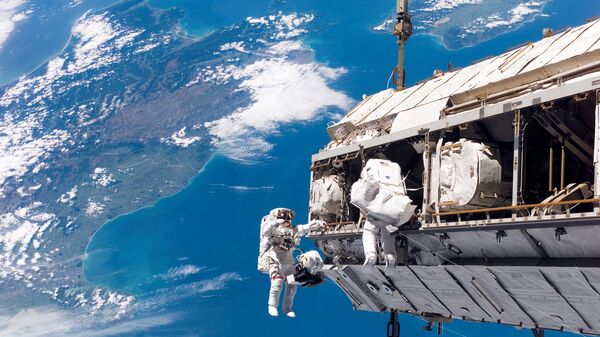Bacteria and fungi have begun breeding on the International Space Station (ISS), leading to the formation of antibiotic-resistant biofilms that could infect astronauts and destroy infrastructure, according to a new study.
The microorganisms, which NASA scientists have discovered, originate from human beings and are commonly found in public buildings on Terra Firma, and can even corrode metals in the space station, London-based journal Microbiome revealed.
He added that "biofilm formation on the ISS could decrease infrastructure stability by causing mechanical blockages, reducing heat transfer efficiency, and inducing microbial influenced corrosion."
— Colin Warren (@VK2CSW) April 6, 2019
Dr. Venkateswaran noted that microbes could survive and thrive in extreme environments, and that species in the ISS may have lived there since it was built, with others being introduced during new astronaut visits and shipment arrivals.
Dr Venkateswaran added: "The influence of the indoor microbiome on human health becomes more important for astronauts during flights due to altered immunity associated with space flight and the lack of sophisticated medical interventions that are available on Earth.
READ MORE: Russian Scientists Discover New Way to Obtain Efficient Energy Materials
As humans prepare for new forms of space travel, including trips to Mars and deep space missions, scientists should thoroughly examine the "microbiome of the closed space environment" to identify which microorganisms could accumulate, as well as "how long they persist and survive, and their impact on human health and spacecraft infrastructure," Mr. Venkateswaran said.




